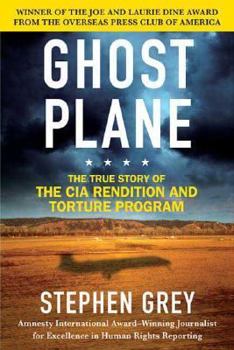Ghost Plane: The True Story of the CIA Rendition and Torture Program
Select Format
Select Condition 
Book Overview
On June 10th, 2002, Attorney General John Ashcroft announced that the US had captured a known terrorist who was exploring a plan to explode a "dirty bomb" on American soil. That alleged terrorist was Jos Padilla who was finally charged in 2005 with conspiracy to murder. What Ashcroft didn't talk about was how information against him was obtained - by the relentless torture of one man-- Binyam Mohamed, in the name of the United States. Arrested at Karachi Airport before Padilla's arrest on April 10, 2002, Mohamed was put on a luxury executive jet and flown to an interrogation center in Morocco. For over 18 months, he was subjected to one torture after another: Beating followed beating and, then, his guards produced razor blades and began to split the skin all over his body, including on his genitals. Since 1997, hundreds of people, many of whom have no ties to terrorist organizations, have been abducted from foreign airports or street corners on suspicions based at times on the flimsiest of evidence courtesy of the United States Central Intelligence Agency. In Ghost Plane, Stephen Grey tells the true story of the CIA's torture program known by the euphemism "extraordinary rendition" and the airplanes that make the program run. Begun during the Clinton administration, but taking a decidedly more voracious turn after 9/11, the rendition system has seen the transfer of more than 1000 prisoners into jails stretching from Guantanamo to Syria, from Kabul to Bangkok and beyond. Grey had access to the thousands of CIA flight records and has interviewed dozens of sources from the most senior levels of the National Security Council to the CIA. In Ghost Plane, he paints a disturbing picture of the War on Terror that reaches to the highest levels of power in Washington, D.C. and exposes the extreme ethical corruption at the heart of this US government program, a program finally acknowledged by President George Bush in September 2006, undertaken in the name of the citizens of the United States.
.





